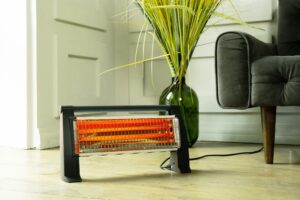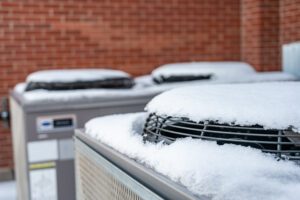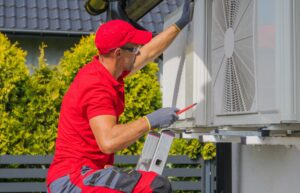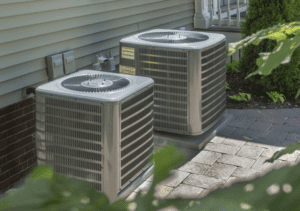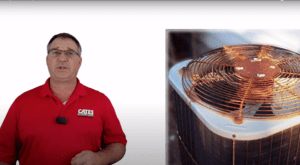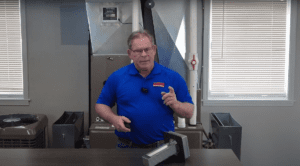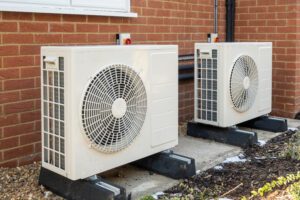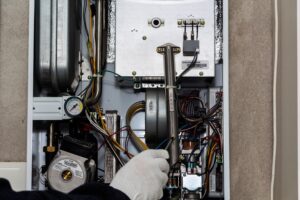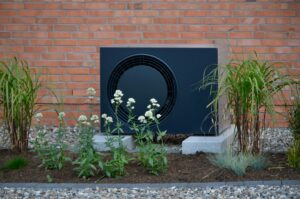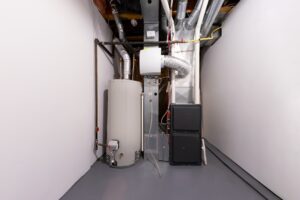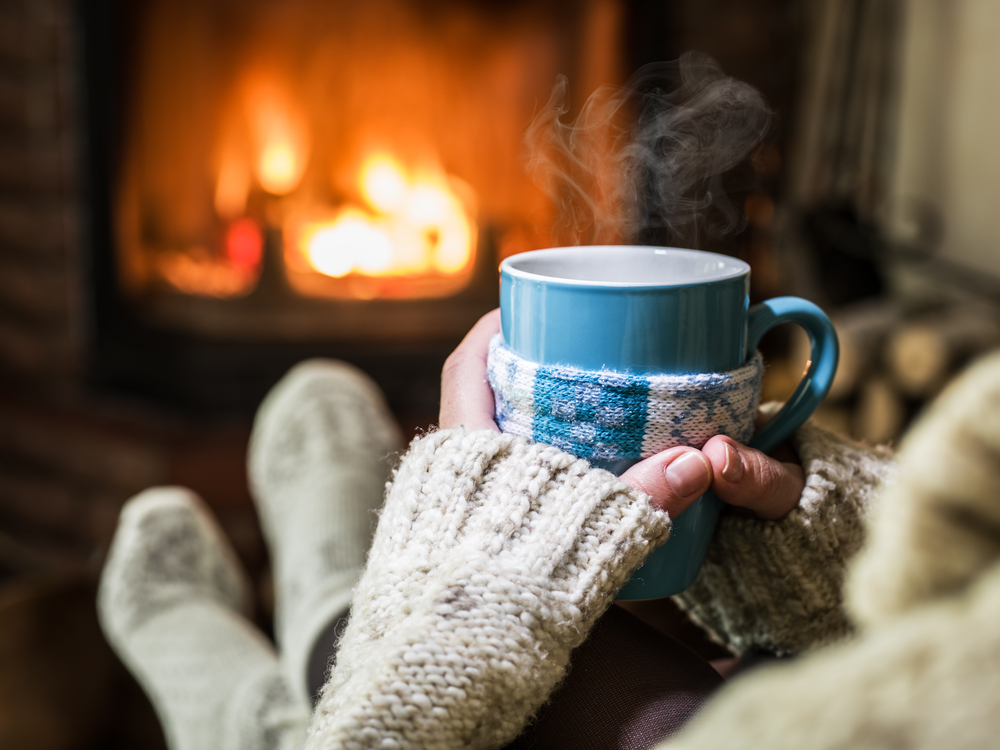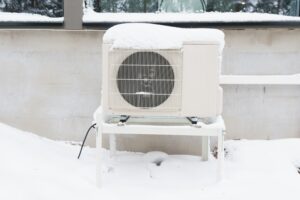In the winter, it is crucial to the comfort of your family to keep your home warm. While there are a number of different ways to keep your house nice and cozy, but some of the methods for heating can be dangerous. In fact, space heaters, wood-burning stoves, and fireplaces cause 72 percent of home heating fires in the United States.
Cates Heating and Cooling in Lenexa, Kansas, wants you to be able to safely heat your home this winter without the risk of starting a fire, so we have some heating tips to keep your family and home safe during the winter.
Central Heating
Having central heat isn’t a luxury that every home has, but if you do have central heat, it is generally the safest way to heat a home. Central heat can run off of electricity, natural gas, or fuel. While natural gas and fuels are often flammable, central heat systems contain the fuel sources in a safer manner than others on this list. Units are often housed away from living spaces and are self-contained to prevent fires.
Electric central heating systems run off of electricity instead of fuel, which means they don’t require any kind of open flame in your home. Because electric central heating systems don’t use flammable gasses, they are the safest heat source available. Electric systems are often more energy efficient as well.
Since electric heating systems are often costlier to purchase and install than other heating methods, many people opt for central heating systems that run on fuel or natural gas, or they purchase fireplaces, space heaters, or wood-burning stoves to provide much-needed heat for their homes.
Fireplace Safety
There is no doubt that fireplaces add something special to a home. They are beautiful, and there is just something about a fireplace that adds comfort to a living space. While there are options on types of fireplaces, wood-burning fireplaces are still the favorite. If you have a fire burning in your home, it is important to follow certain safety precautions. Cates has tips for keeping your home and family safe when using a fireplace.
- Make sure the chimney has air flow
- Before you start a fire in the fireplace, check that your chimney is working properly. You can test this by opening the damper, striking a match in the firebox and blowing it out, and watching where the smoke goes. If the smoke doesn’t float up into the chimney, you need to have your chimney inspected.
- Keep the fireplace door cracked
- If you open the door of the fireplace just a crack, it will draw air up into the chimney and keep smoke from building up in your home. Cracking the door keeps the sparks inside the fireplace, while opening the door all the way can allow sparks to escape into your home.
- Create a safety zone around your fireplace
- It is important to teach your children about fireplace safety, and one great place to start is to create a buffer zone around your fireplace. Make sure your children don’t play or sit within three feet of the fireplace. Train your pets to keep a safe distance as well.
- Consider cracking a window in the room
- Having a window cracked improves the airflow in your home and can keep smoke out of your home.
- Consider placing a fireproof mat in front of the fireplace
- Fireproof mats can quickly eliminate any escaping sparks from the fireplace to prevent fire.
- Dispose of ashes properly
- Even though ashes are the product of fire, they can also be used to start a fire. It is important that ashes are cleaned out of the fireplace periodically to prevent any problems.
- Use proper firewood
- It can be tempting to place pieces of old furniture or other wood scraps you have lying around in the fireplace. The varnish, paint, or finish on these pieces of wood can release toxic fumes into your home, and they can cause build-up in your chimney, so stick to regular firewood. Make sure that logs are dry and cut to the proper size to reduce sparking.
- Use a fire screen
- A chain link or glass fire screen can help keep embers from escaping your fireplace and possibly starting a fire in your home. While these screens can help prevent fires, they also get very hot, and children and pets should be kept away from them. A safety zone can prevent any fire screen burns.
- Only use the proper stoking and cleaning tools in the fireplace
- Using improper tools can lead to many problems. Some items may be flammable, while others could melt and release fumes into your home.
- Get your chimney cleaned
- Keeping your chimney cleaned and well-maintained is crucial if you like to use your fireplace. To keep your family and home safe, call someone out to take a look at your chimney. It should be cleaned at least once a year.
Space Heater Safety
Spaces heaters are a convenient way to heat up small spaces in your home. Since you can move the space heater, and they don’t cost much to buy or use, they are a very popular option for many homeowners. Unfortunately, they cause more house fires than any other heating system. To make sure you are safely operating your space heater, follow these tips from Cates:
- Place your space heater on a flat surface
- One of the reasons space heaters are so dangerous is that they are often knocked over. Space heaters should never be placed on furniture, as they could fall off and break or catch fire.
- Check the cord and connections
- Make sure the connection to the wall is secure. It is also important to never use any electronic device with frayed cords.
- Buy a space heater that shuts off when it is knocked over
- Like previously mentioned, a downed space heater is more likely to start a fire. Now, many space heaters have safety features that turn off power to the machine if it detects that the space heater has been knocked over. This feature can prevent accidental fires in your home.
- Leave space around the heater
- Keep a three-foot radius around your space heater to prevent any problems. If items get too close, they can get hot and catch fire.
- Turn off the space heater when you leave the room
- Never leave your space heater on when you can’t monitor it. If your space heater overheats or is knocked over when you are away, you are putting your home at risk for a fire.
- Only use extension cords that can handle the space heater
- Not all extension cords are equipped to handle the current that space heaters use, which can lead to the extension cord overheating and melting.
- Don’t use space heaters in wet areas
- Electric space heaters should never be used in wet areas as the moisture can cause electric shock and damage the internal components of the heater.
Wood-Burning Stove Safety
Old-fashioned wood-burning stoves are charming, and they can add warmth to a room. Wood-burning stoves can be a safe heating alternative, but you need to know how to care for and use one properly. Here are Cates’s tips:
- Only place stoves on a flat, sturdy surface
- Make sure that your stove is kept on a surface that won’t cause it to fall. It should also be on a protective floor covering to prevent fires.
- Leave space around the stove
- Give the stove ample space in your home. Keep at least 18 inches all the way around the stove. If there are any combustible materials in your home, keep the stove at least 36 inches away from them.
- Use the correct wood
- Use only seasoned wood for fuel. Green wood, artificial logs, trash, and other materials shouldn’t be placed in a wood-burning stove.
- Don’t burn trash or other foreign materials in your stove
- Burning trash or other non-wood materials in your stove can cause excess smoke, toxic fumes, and even unexpected embers in your home.
- Use proper kindling
- Only use paper or sticks to start a fire in your wood-burning stove. Do not use gasoline or lighter fluid.
- Crack a window in the room
- Leaving a window cracked while the stove is burning allows for better airflow into the chimney, which prevents carbon monoxide buildup in your home.
- Get the stove’s chimney cleaned
- To prevent fires, get the chimney of the stove cleaned at least once a year.
No matter what heating system you are using to provide warmth to your family, be sure that you have working smoke alarms and carbon monoxide detectors in your home. You should test these alarms at least once a month to ensure they are working properly.
Cates Heating and Cooling knows just how important staying both comfortable and safe are to you and your family. If you live in the Kansas City Metro Area and need maintenance on an existing heating system or need a new one installed, call Cates Heating and Cooling today at 913-888-4470.


